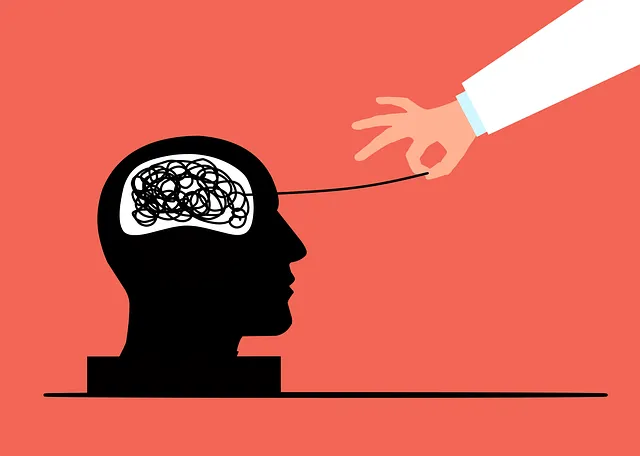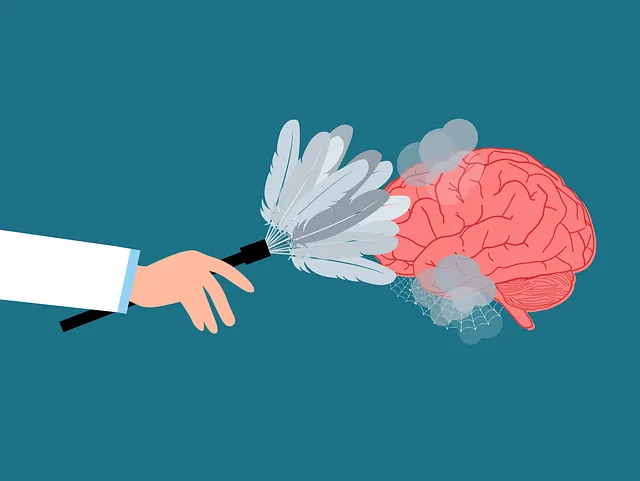Mental wellness group facilitation at Arvada Kaiser Permanente is a specialized skill that empowers individuals to support others through collaborative discussions focused on mental health improvement. Skilled facilitators, akin to navigators, help participants find their path to better wellness using tailored techniques. They foster open dialogue, encourage active participation, integrate self-care routines, conduct risk assessments, and create safe, supportive environments. This approach enhances patient care, raises awareness about mental health, challenges stigma, and promotes holistic care, making it a valuable resource in behavioral health services. Facilitators manage group dynamics, resolve conflicts, promote self-reflection, and guide discussions on stress reduction and mental illness stigma, ultimately enhancing the well-being of members.
Mental wellness group facilitation is a powerful tool in supporting individuals navigating mental health challenges. This article explores effective techniques for facilitating supportive group environments, emphasizing engagement and growth. We delve into the roles of facilitators, offering strategies like icebreakers, mindfulness exercises, and open discussions to foster connection and progress. Additionally, we discuss integrating resources from Arvada Kaiser Permanente behavioral health number to enhance these practices and measure success.
- Understanding Mental Wellness Group Facilitation
- – Definition and importance of group facilitation in mental health support
- – Roles and responsibilities of a group facilitator
Understanding Mental Wellness Group Facilitation

Mental wellness group facilitation is a specialized skill that empowers individuals to support and guide others through collaborative discussions focused on mental health improvement. It’s an art that transcends simple talking therapies, fostering an environment conducive to self-reflection, education, and peer support. Facilitators, much like navigators, help participants find their path towards better mental wellness, using techniques tailored to diverse needs. This approach is particularly prominent in organizations like Arvada Kaiser Permanente behavioral health number, where specialized professionals use group facilitation to enhance patient care and recovery.
Effective facilitators understand that every individual’s journey to improved mental health is unique. They promote open dialogue, ensuring everyone feels heard while encouraging active participation. By integrating self-care routine development for better mental health practices and mood management techniques into sessions, facilitators equip participants with tools to navigate challenges. Moreover, they conduct risk assessments for mental health professionals to predict and mitigate potential risks within the group setting, creating a safe and supportive atmosphere where members can explore their experiences without judgment.
– Definition and importance of group facilitation in mental health support

Group facilitation plays a pivotal role in enhancing mental health support, offering a collaborative and nurturing environment for individuals to navigate their wellness journeys together. It involves skillfully guiding conversations and activities within a group setting, fostering open dialogue, and encouraging peer support. This technique is particularly valuable in organizations like Arvada Kaiser Permanente, where behavioral health services are accessible through dedicated resources.
Effective group facilitation promotes cultural competency among healthcare providers, ensuring diverse perspectives are considered and respected. By integrating Mind Over Matter principles, these sessions can empower individuals to take control of their mental well-being, offering alternative coping strategies and a sense of community. Furthermore, the Mental Health Policy Analysis and Advocacy aspect comes into play as facilitated groups can raise awareness, challenge stigma, and advocate for policies that support holistic mental health care.
– Roles and responsibilities of a group facilitator

The role of a group facilitator is multifaceted and crucial in fostering a supportive environment for individuals navigating mental wellness challenges. As a guide and navigator, they ensure every participant feels heard and respected. Their primary responsibility is to create a safe space where members can openly discuss their experiences, share coping strategies, and offer peer support. This involves active listening, encouraging participation, and facilitating meaningful conversations that promote self-reflection and growth.
A skilled facilitator, such as those offered by Arvada Kaiser Permanente behavioral health services, plays a pivotal role in managing group dynamics. They set clear boundaries, establish ground rules, and mediate any conflicts that arise, ensuring the group remains productive and therapeutic. By employing various techniques like icebreakers, open-ended questions, and interactive activities, facilitators create an engaging atmosphere that encourages participation. Additionally, they are instrumental in guiding discussions around stress reduction methods, mood management, and even mental illness stigma reduction efforts, ultimately enhancing the overall well-being of group members.
Mental wellness group facilitation plays a pivotal role in supporting individuals through shared experiences and collective healing. As highlighted by Arvada Kaiser Permanente behavioral health services, this approach empowers participants by fostering connection, building resilience, and promoting open dialogue. By understanding the nuances of group dynamics and adopting effective facilitation techniques, professionals can create safe spaces that encourage personal growth and improved mental well-being. Embracing these practices ensures a more inclusive and transformative experience for all involved.






